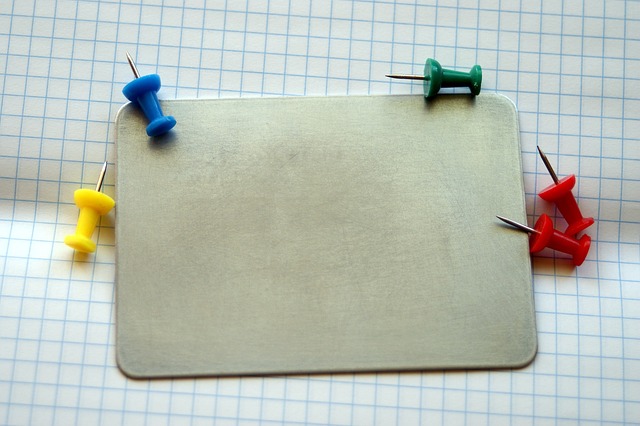Are you considering veneers but concerned about not having any teeth? Discover the dental options available to achieve a radiant smile!
1. Introduction to Veneers and Dental Options for Patients with No Teeth
Veneers are a popular dental option that can greatly enhance the appearance of patients with no teeth. They are thin, custom-made shells that are bonded to the front surface of the teeth. Veneers are typically made of porcelain or composite materials, providing a natural-looking and durable solution for individuals who have lost all their teeth.
There are several dental options available for patients with no teeth, and veneers are one of the most versatile choices. Here are some key benefits of veneers for patients in this situation:
– Improved appearance: Veneers can transform the smile and give patients a renewed sense of confidence. They can mask various dental imperfections such as discoloration, unevenness, or worn edges.
– Customization: Each set of veneers is created specifically for the patient. The shade, shape, and size are carefully chosen to achieve a natural look that complements their facial features and desired outcome.
– Minimal tooth alteration: Unlike other restorative options, veneers require minimal removal of tooth structure. This means that less healthy tooth material is compromised during the treatment process, making it a conservative approach.
– Stain-resistant: Porcelain veneers have a smooth surface that is highly resistant to external stains. This makes them an excellent option for patients who want to maintain a brighter and whiter smile in the long term.
– Long-lasting results: With proper care and regular dental check-ups, veneers can last for many years. Patients can enjoy the benefits of their new smile for a significant period before any maintenance or replacement might be required.
In summary, veneers offer an effective dental solution for patients with no teeth. They provide an aesthetically pleasing appearance, customization options, minimal tooth alteration, stain resistance, and long-lasting results. If you are considering enhancing your smile, veneers can be a valuable choice to restore your confidence and improve your overall oral health.
2. Exploring Dental Implants: A Viable Solution for Toothless Individuals
When it comes to replacing missing teeth, dental implants are a highly effective and reliable solution that has become increasingly popular over the years. Unlike traditional dentures or bridges, dental implants provide a long-lasting and natural-looking option for individuals with missing teeth. Made of titanium, dental implants are surgically placed into the jawbone, acting as artificial tooth roots. Here are some key points to consider:
- Dental implants offer a permanent solution, as they fuse with the jawbone over time.
- Implants provide stability and support, allowing individuals to speak, eat, and smile with confidence.
- With proper care, dental implants can last a lifetime, making them a cost-effective choice in the long run.
One of the main benefits of dental implants is their ability to prevent further bone loss in the jaw. When a tooth is lost, the jawbone can deteriorate over time, leading to changes in facial structure and making it more difficult to secure other dental prosthetics. Dental implants help maintain the integrity of the jawbone by stimulating bone growth and preventing bone resorption. In addition, implants do not rely on adjacent teeth for support, unlike dentures or bridges, which means that the health of surrounding teeth is not compromised. Overall, dental implants provide a viable and reliable solution for individuals with missing teeth, enhancing both aesthetics and functionality.
3. All-on-4 Implants: A Game-Changer for Complete Tooth Replacement
All-on-4 implants have revolutionized the world of complete tooth replacement, offering a game-changing solution that provides exceptional results. This innovative dental procedure involves the placement of four dental implants in the jawbone, which serve as sturdy anchors for a full arch of prosthetic teeth.
Unlike traditional dental implants that require a separate implant for each missing tooth, All-on-4 implants offer a more efficient and cost-effective approach. With just four implants strategically placed in the mouth, patients can enjoy a fully restored smile with improved functionality and aesthetics. This minimally invasive procedure also reduces the need for bone grafting, making it more accessible for individuals with reduced bone density.
- Natural-Looking Results: All-on-4 implants are custom-designed to blend seamlessly with the natural teeth, providing a natural-looking and attractive smile.
- Enhanced Chewing Ability: The stability and strength of All-on-4 implants allow for improved chewing ability, enabling patients to enjoy their favorite foods without restrictions.
- Preserved Facial Structure: By integrating with the jawbone, All-on-4 implants help preserve the facial structure, preventing the sunken appearance often associated with missing teeth.
With All-on-4 implants, patients can regain their confidence, as well as their ability to speak, eat, and smile with ease. This remarkable dental advancement offers a durable and long-lasting solution for complete tooth replacement, ensuring a beautiful, functional, and natural-looking smile for years to come.
4. The Role of Bone Grafting in Achieving a Strong Foundation for Veneers
Bone grafting is a vital component in the process of achieving a strong foundation for veneers. This technique plays a crucial role in ensuring the success and longevity of veneer placement. By understanding the significance of bone grafting in this dental procedure, patients can make informed decisions about their oral health.
So, what exactly is bone grafting and why is it necessary for veneers? Bone grafting involves the placement of natural or synthetic bone material in areas where the jawbone has deteriorated or lost mass. This procedure helps to stimulate the growth of new bone tissue, enhancing the strength and stability of the jawbone. Without a solid foundation, the stability of the veneers can be compromised, leading to potential complications.
- Bone grafting ensures proper support for veneers, preventing any shifting or movement.
- The technique helps in maintaining facial structure by preserving jawbone volume.
- It improves the overall aesthetics of veneers by ensuring a natural look and feel.
- Bone grafting reduces the risk of future bone loss and potential dental issues.
With bone grafting, dental professionals can create a sturdy base for veneers, allowing patients to enjoy the benefits of a confident smile for years to come.
5. Dentures and Veneers: A Hybrid Approach to Restoring a Natural Smile
When it comes to restoring a natural smile, dentures and veneers are two popular options that can be combined for a hybrid approach. This combination allows for a seamless and comprehensive restoration that addresses both functionality and aesthetics.
Dentures are a removable dental appliance that can replace missing teeth. They are designed to fit comfortably in the mouth and restore the ability to chew and speak properly. With advances in technology, dentures now look more natural than ever. They can be customized to match the shape, size, and color of your remaining teeth, resulting in a natural-looking smile.
- Improved chewing: Dentures provide the necessary support for efficient chewing, allowing you to enjoy a wide variety of foods.
- Restored speech: Missing teeth can affect speech clarity, but dentures can help regain proper pronunciation and articulation.
- Enhanced smile: Dentures fill in gaps caused by missing teeth, improving the appearance of your smile and restoring self-confidence.
Veneers, on the other hand, are thin, custom-made shells that are bonded to the front surface of teeth. They are primarily used for cosmetic purposes and can effectively address issues like discoloration, chips, and misalignment. Veneers are made from porcelain or composite resin, which closely resemble the natural color and texture of teeth.
- Improved appearance: Veneers can drastically transform the look of your smile by masking imperfections and creating a uniform, white, and symmetrical appearance.
- Stain resistance: Porcelain veneers are highly resistant to staining, allowing you to enjoy your favorite foods and beverages without worrying about discoloration.
- Minimal tooth alteration: Veneers require minimal tooth preparation, preserving most of your natural tooth structure.
6. Overcoming Challenges: Alternative Techniques for Veneers with No Teeth
When it comes to dental veneers, having no teeth can present a unique set of challenges. However, there are alternative techniques available that can help overcome these obstacles and provide patients with a confident and natural smile. If you find yourself in a situation where you have no teeth but are seeking veneers, consider the following alternative techniques:
1. Implant-supported dentures: Instead of traditional veneers, implant-supported dentures can be an excellent option. This technique involves surgically placing implants into the jawbone to secure the dentures firmly in place. Not only does this provide stability, but it also ensures a more natural appearance.
2. Snap-on smile: Another alternative technique for veneers without teeth is the snap-on smile. This removable appliance allows you to “snap on” a set of custom-made veneers directly over your existing teeth or gums. It offers a quick and painless solution for achieving a beautiful smile without any invasive procedures.
7. Consult with Your Dentist to Determine the Best Veneer Option for You
When considering veneers, it is vital to consult with your dentist to determine the most suitable option for your unique dental concerns. A professional evaluation will help you identify the right type of veneer that will enhance the appearance of your teeth and give you the smile you desire.
During your consultation, your dentist will thoroughly examine your teeth and discuss your aesthetic goals with you. They will take into account factors such as the condition of your teeth, the shape of your face, and your overall oral health. Based on their evaluation, they may recommend one of the following veneer options:
- Porcelain Veneers: Made from high-quality ceramic material, porcelain veneers are durable and provide a natural-looking appearance. These veneers can effectively cover up stains, chips, gaps, and misaligned teeth.
- Composite Veneers: These veneers are crafted using a tooth-colored resin material. While they may not last as long as porcelain veneers, they can still provide significant improvements to your smile. Composite veneers are particularly suitable for minor cosmetic issues and are more affordable.
- Lumineers: Lumineers are ultra-thin, minimal-prep veneers that are custom-made to fit your teeth. They offer a painless and reversible solution for enhancing your smile, as they require minimal alteration to the tooth structure.
Remember, each veneer option has its unique advantages and considerations depending on your specific dental needs. By consulting with your dentist, you can make an informed decision and achieve the smile you’ve always desired.
In conclusion, while veneers may be a popular solution for enhancing smiles, they require natural teeth as a foundation. If you have no teeth, dental alternatives such as implants or dentures are more suitable options. Always consult with a dental professional to explore the best choice for your unique circumstances. Remember, a beautiful smile starts with a healthy foundation!






